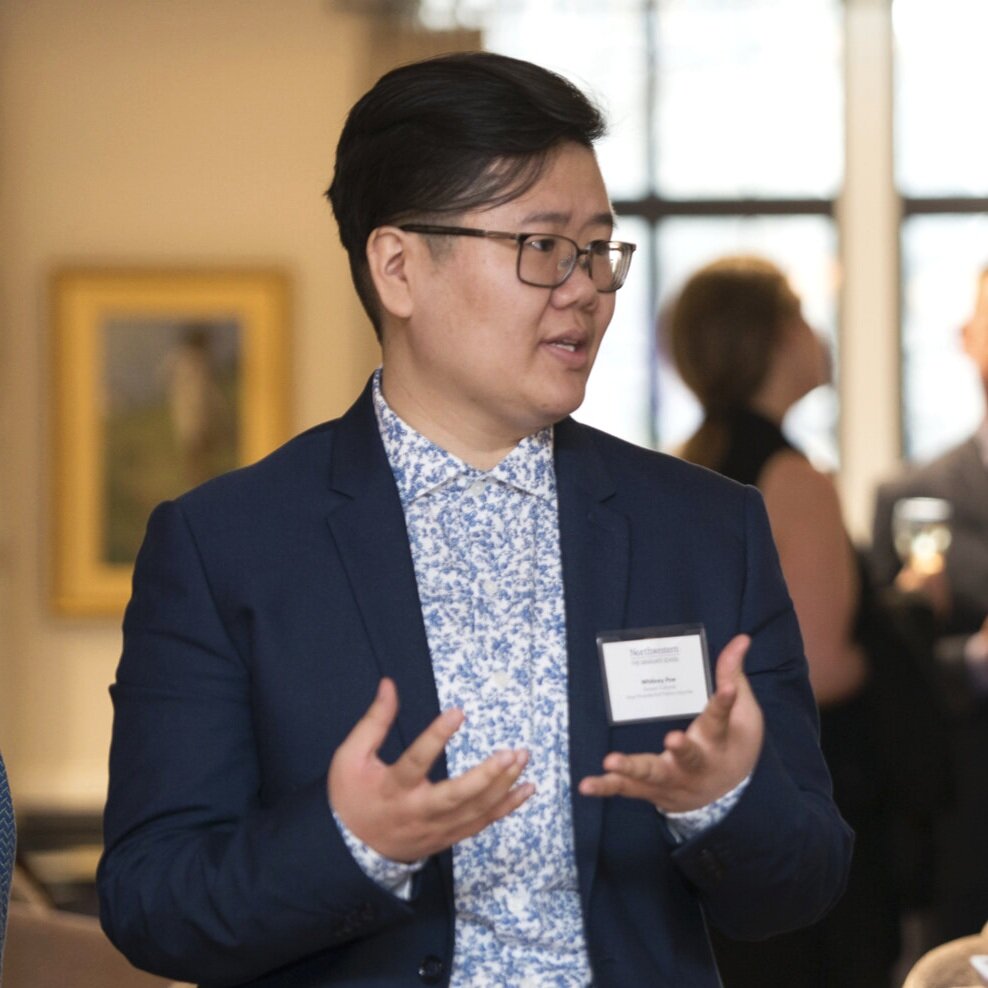Hello, I'm Whitney (Whit) Pow.

I'm Whitney (Whit) Pow
I am a media historian and an Assistant Professor at New York University in the Department of Media, Culture, and Communication. My research focuses on trans histories of video games, software, and computational media.
Book project
I write about the everyday, and at times invisible, circulation of power within and around digital and interactive media, and the ways that trans programmers and video game designers have been imagining resistive futures and alternative possibilities for computational media and video games from the 1970s to today.
I’m currently working on a book project, People Orientations: Toward a Trans Video Game and Software History.
People Orientations looks at histories of games and digital art made by three queer and transgender programmers and video game designers, Danielle Bunten Berry, Jamie Faye Fenton, and Cathryn Mataga. My book looks at these three women’s game and design work and locates them in histories of early software development, computing, and digital games.
In this book, I write about the way that digital media created by queer and trans people question and refuse knowability and legibility, resist representation, and create new modes of historiography, alternative archives, and tactics for refusal and survival.
My work centers queer, trans, and feminist interventions in video game, software, data, surveillance, and technology studies. Central to my research is the knowledge that computational media technologies were built around the elided presences and histories of queer and trans people and people of color.
Research PROJECTS
My work focuses on queer and trans histories of video games, software, technology, and computing. In addition to my book, I am working on the following projects:
A Trans Historiography of Glitches and Errors, which focuses on early trans histories of home computing, glitch art, and the software error, situating the glitch as a historical mode of trans production
How the Computer Taught Us to See, forthcoming from Camera Obscura, an article that chronicles the history of the first object-oriented graphical user interfaces (GUIs) and its intersection with queer and trans medical history, surveillance, and policy
The Specter of the Chinese Room: The Queer of Color Origins of Artificial Intelligence, an article about the queer, trans, and xenophobic origins of artificial intelligence and their intersection with immigration policy from the 1960s to 1980s.
Glitch, Body, Anti-Body, an article in conversation with Legacy Russell’s Glitch Feminism that focuses on the breakdown of the organizing metaphor of the computer’s graphical user interface alongside the breakdown of the metaphor of my own body after being significantly sick from COVID before vaccines were widely available. This article re-thinks the relationship between virality, glitch, interfaces, and the body.
Multimedia and Interactive Design
I designed a digital art piece titled Digital TV Breakfast in response to foundational trans software programmer Jamie Faye Fenton’s 1978 glitch art video, Digital TV Dinner. My art piece is a part of the Chicago art exhibition, Chicago New Media 1973-1992, curated by School of the Art Institute of Chicago professor Jon Cates with assistance from the Video Game Art Gallery’s Director of Exhibitions and Programs Chaz Evans and Executive Director Jonathan Kinkley.
Digital TV Breakfast was exhibited at Gallery 400 in Chicago as well as at the international new media art festival, Ars Electronica 2019 in Linz, Austria as a part of the art exhibition Chicago New Media 1973-1992.
With the support of the University of Chicago's Game Changer Research Fellowship, I designed and developed a queer game titled The Doctor Will See You Now, which was showcased at the Different Games Conference and at a panel titled Chicago Made Video Games as New Media Art at the Adler Planetarium’s Adler After Dark series.
